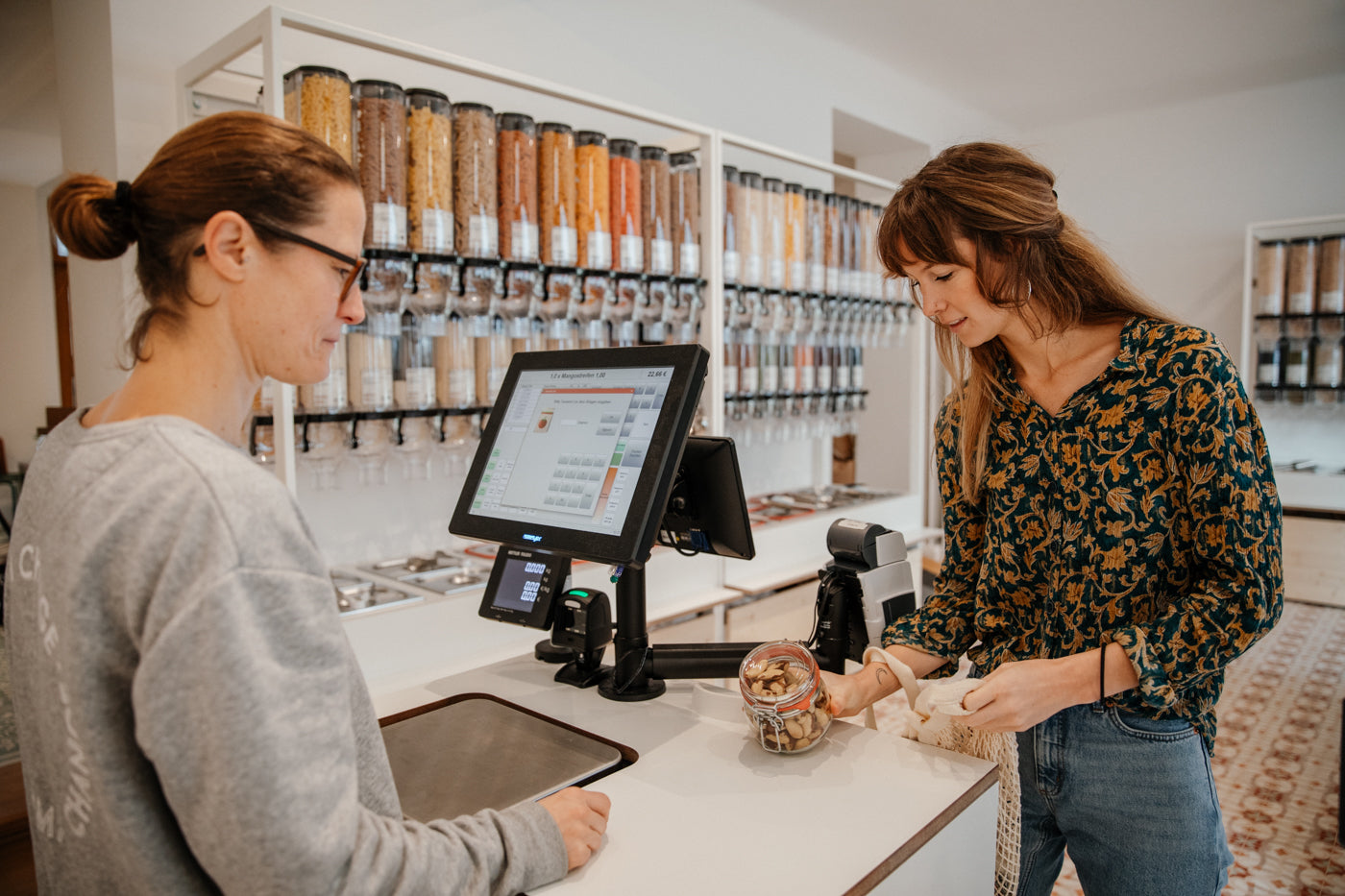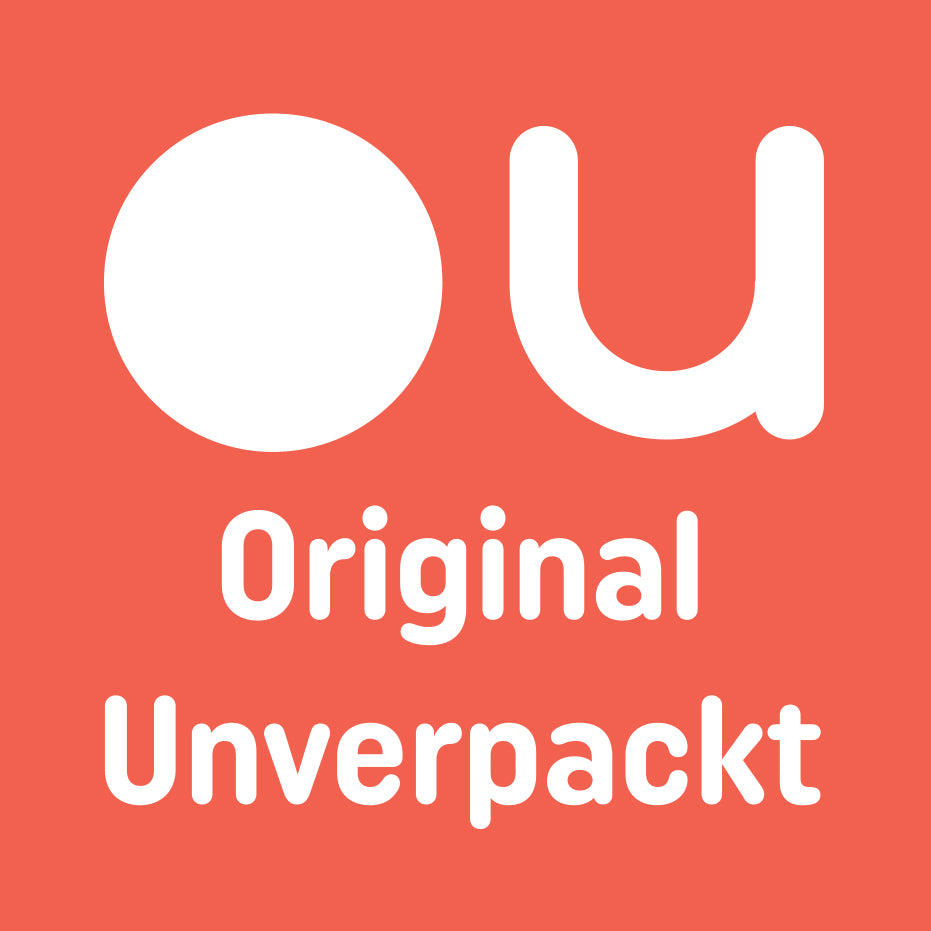
Our unpackaged pricing policy
Is shopping without packaging expensive? Why is the unpackaged muesli more expensive at your store than the packaged one at the discounter? Isn't it cheaper for you to shop because there is no packaging? First of all: We don't have huge margins and we don't want to make a fortune from your sustainability. We want to make the world more plastic-free and of course we want as many people as possible to be able to shop without packaging.
But how do they come about? And are we really more expensive than others? First of all, a comparison: if you compare our prices with discounter prices, we are definitely more expensive. We cannot and will not deny that. But we do not compare ourselves with them either. The comparison is flawed. After all, you cannot compare apples and pears. Our products are not only unpackaged, but also organic and as regional as possible. That has its price. Let's compare ourselves with other pears. With other organic shops. Things look very different there. Compared to the organic shop, we are on par with many products. Some are cheaper, some are more expensive, but all in all the total purchase costs about the same.
How are our prices determined? What exactly do you pay when you shop with us?
We have already mentioned point 1. Our product quality is very high. Our standard is organic and as regional and fair as possible. Quality has its price.
Point 2: We are quite small and buy less. We and most other unpackaged stores are privately run, independent companies. This means that we all order individually from the manufacturer. That is why our order quantities are limited. Larger customers such as BioCompany or Alnatura have much larger order quantities and therefore receive relatively cheaper prices. However, this is usually only the case for their own brands, as these are ordered in such large quantities.
Point 3: We have less choice when it comes to manufacturers and suppliers. Not every manufacturer offers their products the way we want them. Many suppliers do not have an unpackaged concept and are therefore not an option for us. The market is smaller. We cannot choose between 100 suppliers, but perhaps only between two or three. But we are also constantly looking and want to improve. This also applies to prices. We are happy to look for cheaper alternative products if they meet our requirements.
Point 4: Unpackaged stores have more complex delivery processes. The 25 kg bags have to arrive at the store and be transported somehow. We do this by hand, which takes time and is exhausting. In the traditional supermarket, the packaging is put on the shelves. We transfer the food into the bins. This takes longer, especially when complying with hygiene regulations, than if you unpack the pallets and just throw them on the shelves.
Point 5: We support local manufacturers. Be it a small soap factory or a start-up that creatively upcycles. We want to support innovative, sustainable ideas and are prepared to pay more for them.
So we have reasons for the prices. That explains the price, but it doesn't make the products cheaper. But we think it feels different to shop with this knowledge. Do you?



Leave a comment
This site is protected by hCaptcha and the hCaptcha Privacy Policy and Terms of Service apply.